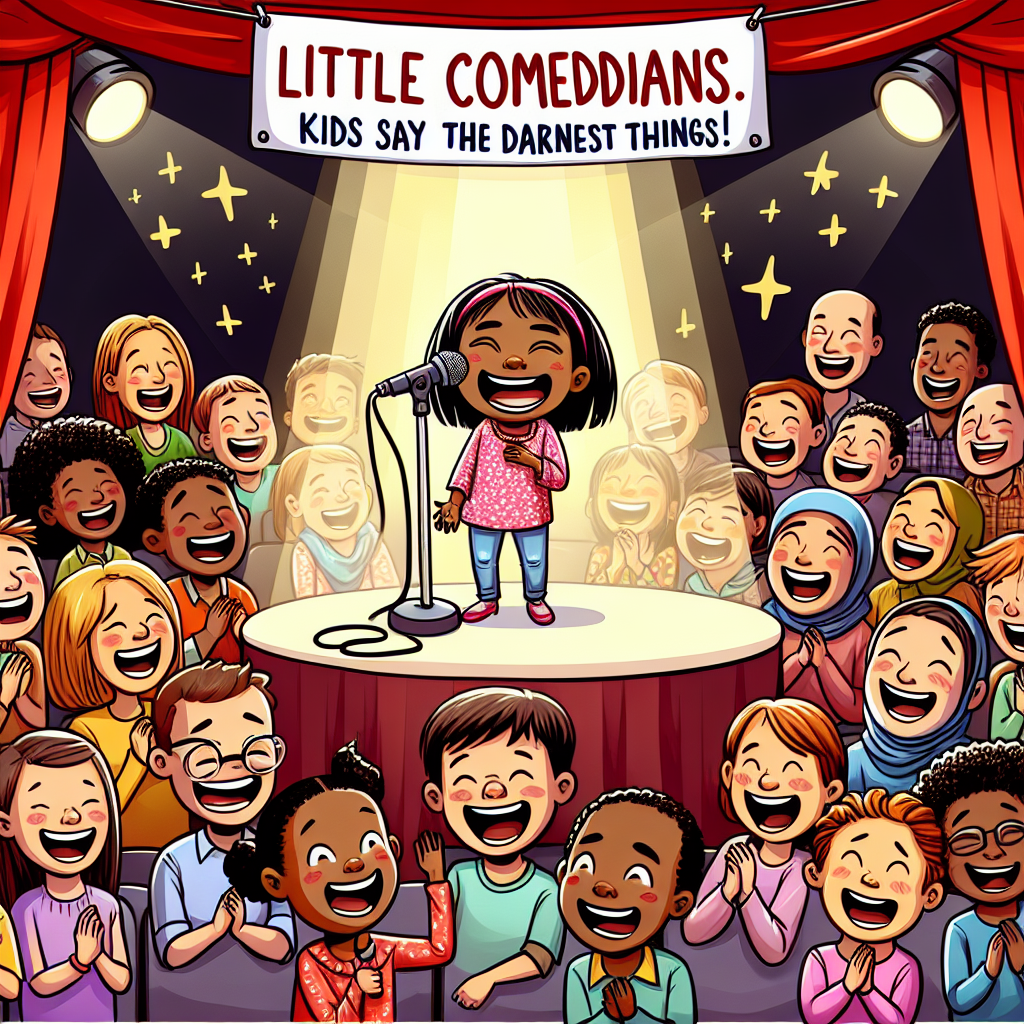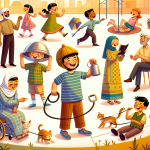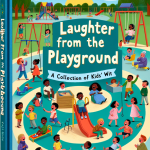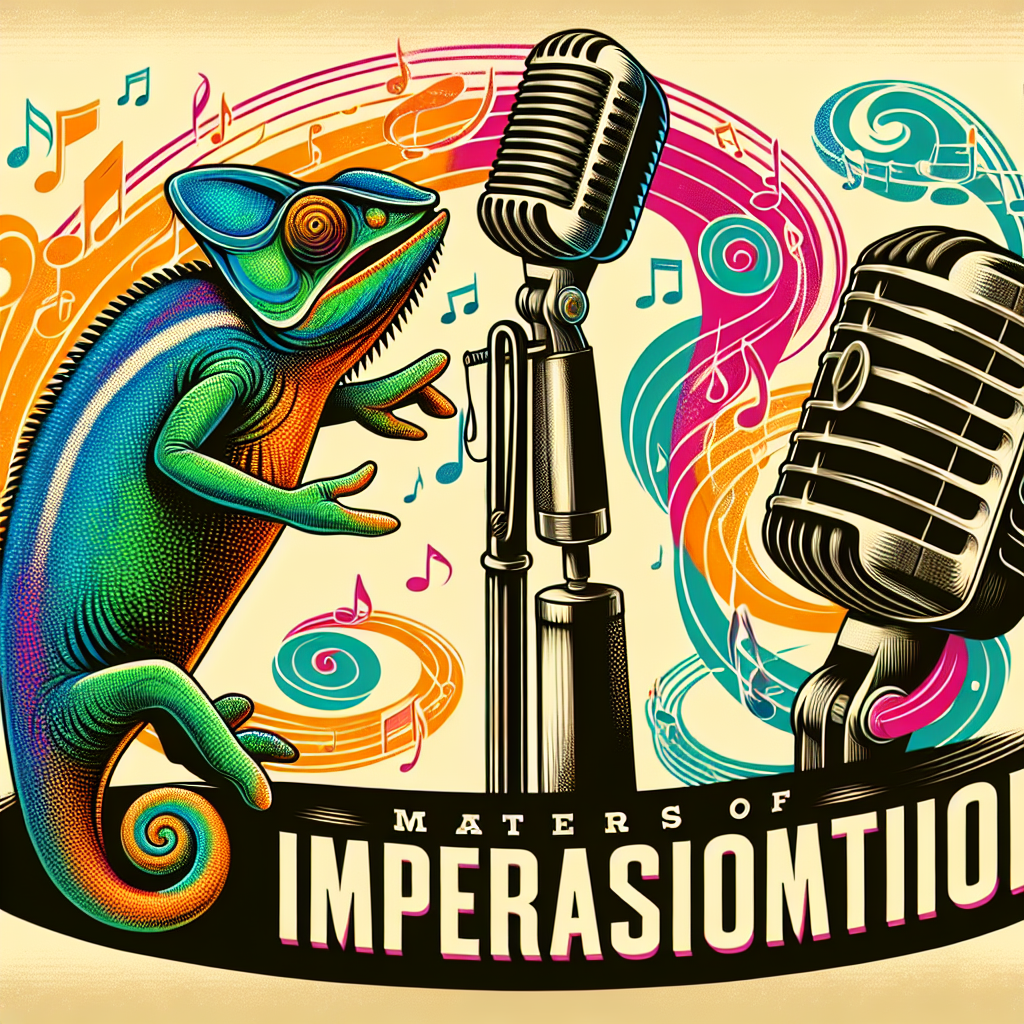Little Comedians: Kids Say the Darndest Things!

Table of Contents
- Introduction
- Understanding Children’s Humor
- The Nature of Humor in Childhood
- Developmental Stages of Humor
- Toddlers (Ages 1-3)
- Preschoolers (Ages 3-5)
- Early Elementary (Ages 6-8)
- The Role of Parents and Social Environment
- Amusing Anecdotes: Kids Say the Darndest Things
- Innocent Observations
- Funny Misinterpretations
- Psychological Aspects of Humor Development
- The Importance of Humor in Development
- Tips for Nurturing a Child’s Sense of Humor
- Encourage Playfulness
- Share Jokes
- Model a Sense of Humor
- Appreciate Their Efforts
- Conclusion
Introduction
Children have a unique perspective on the world, and their innocent, unfiltered observations often lead to moments filled with humor and insight. The phrase “Kids say the darndest things” has become a cultural staple, capturing the essence of childhood spontaneity. In this article, we will explore the reasons behind children’s humorous remarks, share amusing anecdotes, and highlight the psychological and developmental aspects that contribute to their comedic genius.
Understanding Children’s Humor
The Nature of Humor in Childhood
Children’s humor often stems from their developmental stage and understanding of language and social interactions. A landmark study by researchers at the University of Colorado Boulder found that children develop a sense of humor as early as two years old. This humor can be categorized into several types, including:
- Physical Humor: Slapstick and silly actions.
- Linguistic Humor: Wordplay, puns, and funny phrases.
- Situational Humor: Ridiculous or unexpected situations.
Developmental Stages of Humor
Toddlers (Ages 1-3)
At this stage, humor is largely physical. Children find joy in giggling at silly faces or funny sounds. Their understanding of language is still developing, and thus their humor revolves around bodily functions and gross-out jokes.
Preschoolers (Ages 3-5)
Preschoolers start understanding language better, leading to the emergence of simple jokes and puns. They love to tell stories, often mixing reality with fantasy. Their whimsical imaginations play a crucial role in their humor, which can be both absurd and delightful.
Early Elementary (Ages 6-8)
In this age group, kids begin to grasp more complex jokes and appreciate irony and sarcasm. They learn to construct longer stories filled with humor, often imitating comedians or humorous characters from media they consume.
The Role of Parents and Social Environment
Parents and caregivers play an integral role in shaping a child’s sense of humor. Encouraging laughter and play, responding positively to their jokes, and sharing humorous experiences can nurture their comedic skills.
Amusing Anecdotes: Kids Say the Darndest Things
Innocent Observations
Children often make comments that reflect their honest understanding of the world around them. Here are some amusing observations made by children that illustrate their unique perspectives:
-
“Why do we have to brush our teeth? They’ll just get dirty again.”
This comment highlights a child’s logic: the cyclical nature of cleanliness and messiness. It brings a smile because it challenges adult routines.
-
“If we’re all made of stardust, does that mean we can go to space if we jump really high?”
This innocent query taps into their creativity and broad understanding of space and science, framed in a context that makes sense to them.
Funny Misinterpretations
Misinterpretations of language or social norms are a source of countless laughs:
-
“Is it true that cats are just dogs in fur coats?”
This misunderstanding of animal behavior showcases kids’ ability to entertain thoughts that blend humor with logic.
-
“Mom, is it okay if I do my homework, or is it against the law?”
Such a statement comically conflates the concept of laws with household rules, revealing how children navigate their reality.
Psychological Aspects of Humor Development
The Importance of Humor in Development
Research has shown that humor plays a crucial role in a child’s psychological and social development. As highlighted in this helpful overview by the American Psychological Association, humor can:
-
Enhance Cognitive Skills: Encouraging kids to think critically about puns, jokes, and humorous scenarios can improve their problem-solving abilities.
-
Improve Social Skills: Sharing jokes helps children bond with peers, fostering friendships and enhancing social interaction skills.
- Boost Emotional Intelligence: Understanding humor requires awareness of others’ feelings, which develops empathy and emotional awareness.
Tips for Nurturing a Child’s Sense of Humor
Encourage Playfulness
Creating an environment where laughter is welcomed can foster a child’s humor. Engage in light-hearted games and encourage silly play.
Share Jokes
Introduce your child to age-appropriate jokes that can spark interest. Use books or websites that compile children’s jokes, allowing for shared laughter between you and your child.
Model a Sense of Humor
Children learn by example. Show them how to find humor in everyday life and not take themselves too seriously.
Appreciate Their Efforts
Respond positively to children’s attempts at humor, regardless of how “funny” they are. Encouragement can motivate them to keep exploring their comedic side.
Conclusion
“Kids say the darndest things” is more than just a light-hearted saying; it’s a celebration of the innocent perspective children offer. Their capacity to find humor in the mundane, the absurd, and the complex is a reflection of their developing minds. As parents, teachers, or caregivers, fostering this sense of humor can lead not only to laughter but also to significant cognitive and emotional growth.
If you want to explore more insights into parenting and child development, be sure to check out our other articles at Serached.
This article strives to capture the essence of humor in childhood while adhering to SEO best practices and Google AdSense policies. For further reading on related topics, we recommend exploring the impact of humor on children’s learning and understanding childhood psychology.
Latest Posts
You Might Also Like

Lorem ipsum dolor sit amet, consectetur adipiscing elit. Ut elit tellus, luctus nec ullamcorper mattis, pulvinar dapibus leo.
TOP NEWS
Copyright © 2025 FunnyShowStreaming.site | All rights reserved.



















Comments are off for this post.